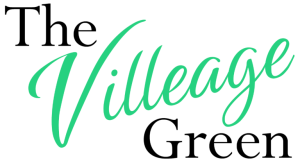
The Big Red Farm has adopted, and continues to push for, sustainable measures under farm manager Ian Macdonald. Before he started at Lawrenceville, Macdonald worked as a chef, caterer, and mechanic. Over time, he began working with the previous farm manager. He had experience working with local farms before Lawrenceville and was eventually invited to join the farm committee. Macdonald stated, “when the farm manager left the school… we had a committee meeting and everybody looked at me. I was happy to do it.” Since then, Macdonald, as the current Farm Manager, deals with the daily challenges and rewarding routines of running the farm.
This routine includes chores, as Macdonald describes them, involved in maintaining the farm. The feed for the animals must be managed, and the lambs must be moved every 8 days. Additionally, the feeder for the pigs must be filled about once a week so water does not percolate. Vegetables must also be watered, checked for pests and diseases, and fertilized. In order to fertilize and water the plants so that they don’t need to rely on rainfall, Macdonald installed drip tapes. Drip tapes are super-thin tubes with drippers inside them, so water and necessary nutrients are slowly deposited out to the row crops.
However, Macdonald explains, “every day, there’s some kind of surprise…something breaks, fencing issues happen, and animals can get out.” Even additional measures, such as the fence around the exterior of the farm, are not 100 percent effective in preventing problems. Making sure the farm stays sustainable also brings its own unique set of challenges.
According to Macdonald, “industrial agriculture is basically depleting and stripping the land and then replenishing” the land with petroleum industry products such as fertilizers. “It’s not a good practice for the environment,” he added. Even industrial organic farming isn’t exactly great for the environment. It involves the same basic process as industrial farming, only using organic materials. Because standard industrial farming is not environmentally friendly, The Big Red Farm utilizes other methods.
“We’re trying to do things in a regenerative fashion,” said Macdonald. Regenerative farming practices are a huge part of the Big Red Farm’s sustainability values. Regenerative agriculture has been used by Indigenous communities for centuries. It focuses on the relationship between farming and nature. This aims to decrease the preparation done to land for plants to grow, known as tillage, increase biodiversity, integrate livestock into the farm, and protect the soil. Macdonald believes that regenerative farming “is the key to reversing climate change.”
Gradually converting farmers to regenerative agriculture has succeeded in the past. In the Chesapeake Bay project, for example, farmers were eased into regenerative practices using incentives. “It did take awhile for [the practices] to take hold, but what the farmers found was that it was not harder, it was not more expensive, and it was much more productive,” Macdonald remarked.
Lawrenceville has consulted with several groups regarding its regenerative farming, including the Rodale Institute and the Decency Foundation. The Big Red Farm is continuously working on regenerative farming to become more sustainable. Currently, only 27 of the 276 acres of land are used for the Big Red Farm.
“What we would like to see is the other 90% of the farmland out there converted to regenerative practice, and we would like to create a closed-loop food system,” said Macdonald. With the rest of the farmland, the farm could stop relying on external inputs for things like feed, and grow its own non-GMO corn and soy, making Lawrenceville’s farm much more sustainable.
“We’re progressing toward regenerative farming, and if the industrial food system could change completely to regenerative farming, we would make a much bigger dent on climate change than green energy,” said Macdonald.


